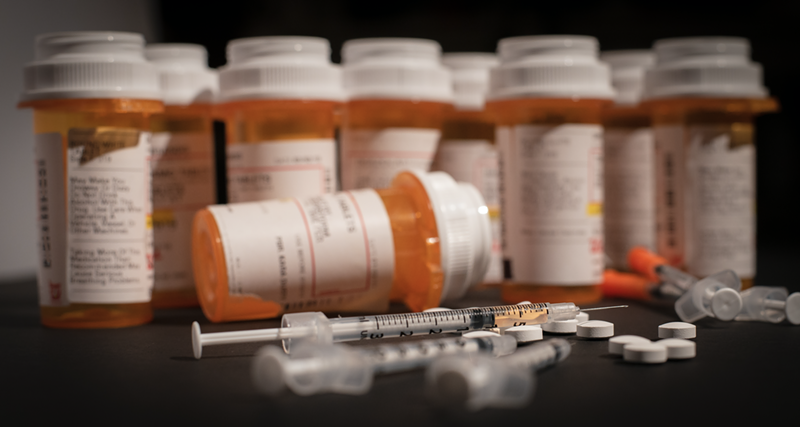Michigan sees an increase in opioid abuse as a result of coronavirus-related despair
The current state of the world — a devastating virus, isolation, unemployment, and the subsequent loss of economic security, medical insurance, and general day-to-day stability, including in-person meetings and support groups for those who require them — is believed to have played a role in rising opioid overdoses and deaths in the U.S., according to new data.
Michigan is one of more than 35 states that have reported an uptick in opioid-related deaths since the start of the coronavirus in March, according to the American Medical Association. AMA is urging states to consider legislation that removes restrictions for patients to obtain necessary prescription medications, as well as implement support harm reduction strategies as part of their respective emergency orders.
In addition to an increase in opioid-related deaths, Michigan's emergency rooms saw a 42% increase in opioid overdose visits from April to May, Bridge Michigan reports, even though emergency room visits decreased significantly due to fear of over-taxed hospitals. Between April and June, there was a 26% also increase in EMS runs for reported overdoses when compared to 2019.
Bridge also reports that, as of last week, at least a dozen western Michigan counties suffered 149 deaths related to opioid overdoses, compared to 94 deaths last year.
Nationally, early reports suggested that, as a result of coronavirus, the U.S. could see a total of 75,000 “deaths of despair,” or deaths relating to suicide, drug overdoses, alcohol poisoning, and alcohol-related liver disease. In fact, deaths of despair were on the rise as early as January of this year — in other words, pre-coronavirus — with experts citing capitalism, distrust in democracy, and harsh labor markets as being some of the underlying causes.
The hurdles for those with opioid dependency issues and mental health concerns are made even more difficult and life-threatening due to the sudden changes in drug supply chains. The consequences are fatal when coupled with isolation and lack of access to recovery groups, mental health facilities, needle exchange programs, and, in some cases, people left without potential second parties to help administer overdose reversal drugs, like naloxone.
Last month, a report published by Pine Rest Christian Mental Health Services in Grand Rapids suggests that Michigan could see “an additional 1,997 suicides” if the needs of those with addiction and mental health issues are not prioritized.
If you or someone you know is in need of help, call the National Suicide Prevention Lifeline (1-800-273-8255 or text 741-741) which provides free and confidential emotional support 24/7.
We have a new events newsletter! Find out the best things to do in the area every Thursday morning in your inbox.


